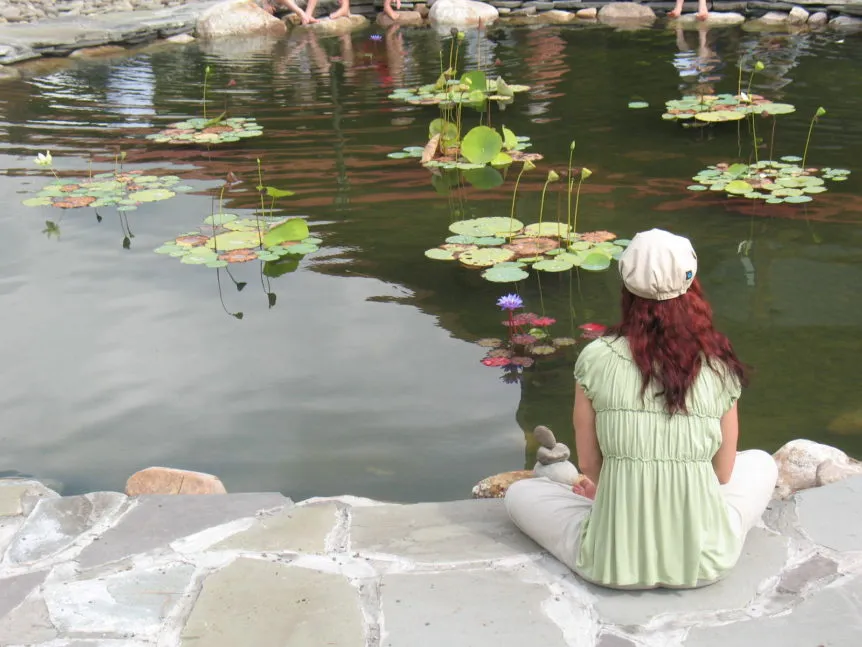As we know in life there is suffering, and also that there is happiness. We might not always think about the connection between the two. But if we look deeply, we can discover a very intimate connection indeed between happiness and suffering.
If we bring to our minds an image of the lotus flower, it is easy to be moved deeply by its beauty and elegance. And you probably know what the lotus flower needs in order to grow, right? Mud. The lotus needs mud in order to grow. So, if there is no mud, there can be no lotus flower. This is a very simple fact for gardening, very every-day. But this has a very profound meaning for our hearts.
Happiness and suffering are two sides that need each other. Like the lotus needs mud to grow, happiness needs suffering in order to exist. No mud, no lotus.
Happiness is Made of Non-Happiness
Thich Nhat Hanh writes on the relationship of suffering to happiness:
When we cut a beautiful rose and place it in a vase, it is so pure and smells so good, so fresh. A garbage can is the opposite. It smells horrible, and it is filled with rotten things. But that is only when we look on the surface. If we look more deeply, we will see that just five or six days, the rose will become part of the garbage. We do not need to wait 5 days to see this. If we just look at the rose deeply, we can see it now.
And if we look into the garbage can, we see that in a few months, its contents can be transformed into lovely vegetables, and even a rose. So with this insight, when you look at the garbage, you can see the rose. And when you look at the rose, you can see the garbage. Roses and garbage INTER-ARE. Without a rose, we cannot have garbage; without garbage, we cannot have a rose. They need each other very much. And they are both precious.
Can we look at the garbage and see the rose it will become?
Just as the rose is made of what is non-rose, happiness is made of non-happiness. The element of mud is part of what makes happiness possible. Suffering is the mud for the lotus of happiness.
So the invitation is to look at what we might call suffering with the same eyes that we looked at the garbage can. Can we see the rose it will become?




